A Good and Happy Child
Autor Justin Evansen Limba Engleză Paperback – 31 mar 2008
“Beautifully written and perfectly structured. . . . This novel is much more than The Omen for the latte generation, and Evans cleverly subverts expectations at every turn.” –Washington Post
In the smart and suspenseful A Good and Happy Child, a psychological thriller in the tradition of Donna Tartt’s The Secret History with shades of The Exorcist, a young man reexamines his childhood memories of strange visions and erratic behavior to answer disturbing questions that continue to haunt him and his new family.
“[A] satisfying, suspenseful first novel. . . . Young George’s intriguing story unbalances the reader right up to the book’s deliciously chilling end.”
—People
“A scary, grown-up ghost story that combines Southern gothic with more than a twist of The Exorcist. . . . Combine[s] mind-bending storytelling with excellent prose.”
—Portland Tribune
“Think Rosemary’s Baby—plus . . . told in the kind of prose that mesmerizes, sweeping the reader along so fast that there’s no time to ask questions.”
—Hartford Courant
“[A] dazzling debut . . . part psychological thriller, part horror story.”
—Chicago Tribune
“Relat[es] his otherworldly suspense story with the cool, calm eye of a skeptic.”
—Entertainment Weekly (A—)
| Toate formatele și edițiile | Preț | Express |
|---|---|---|
| Paperback (2) | 100.88 lei 6-8 săpt. | |
| BROADWAY BOOKS – 31 mar 2008 | 112.74 lei 3-5 săpt. | |
| Vintage Publishing – 3 iul 2008 | 100.88 lei 6-8 săpt. |
Preț: 112.74 lei
Nou
Puncte Express: 169
Preț estimativ în valută:
21.58€ • 23.43$ • 18.12£
21.58€ • 23.43$ • 18.12£
Carte disponibilă
Livrare economică 01-15 aprilie
Preluare comenzi: 021 569.72.76
Specificații
ISBN-13: 9780307351289
ISBN-10: 0307351289
Pagini: 336
Dimensiuni: 135 x 208 x 18 mm
Greutate: 0.25 kg
Editura: BROADWAY BOOKS
ISBN-10: 0307351289
Pagini: 336
Dimensiuni: 135 x 208 x 18 mm
Greutate: 0.25 kg
Editura: BROADWAY BOOKS
Notă biografică
JUSTIN EVANS is a strategy and business development executive in New York City, where he lives with his wife and their two children. This is his first novel.
Extras
December, Last Year
It was a tidy brownstone on Ninth Street near my home, one that I had passed many times without noticing. Stone stairs and a comfortable warm light inside. On the sidewalk, a lady walked her dog, a bug-eyed Boston terrier, black. She smiled at me. I wondered if she knew somehow that I was a soul in need.
My recent problem made me think of an instructor I had in college, an Israeli, who was always laughing at American naïveté, who was fond of saying, "With Freud, we are all poets in our dreams." To him, analysis and dream interpretation were ways of converting our little personal miseries into big, robust myths. I had no intention of doing this when I arrived at your office. My problem, while maybe uncommon, seemed more like a hang-up than a crisis; I had no wish to dramatize myself, become the hero who asks the right questions, solves the riddles, and slays the dragon in an epic sung on the streets of Manhattan. In fact, I can honestly say I had no memory of the events I describe in these pages-meaning no conscious memory, no current memory. They are things I experienced in childhood, then tucked away in a file along with the soccer games, the Christmas presents, and the illicit midnight Nutter Butters. With both my parents now dead, and no siblings-and with many old ties severed-the only way to my past led through my own mind. Strange, then, and a tribute to you, that you exposed this the very first day you met me.
The foyer smelled of damp carpet, and the lightbulb was burned out. An inauspicious start, I thought. The brownstone was obviously a private residence. There were mailboxes in the hall and a mountain bike tucked under the stairwell. I reached the apartment with the tag "DR. H. SURMAN." I knocked, and you appeared, shaking my hand, smiling, leading me inside to your office, to a wicker chair in a pleasant room with plenty of daylight (but discreet shutters on the lower halves of the windows), hanging plants, throw pillows, and a cinnamon smell that might be some kind of aromatherapy (why not? I thought, get my money's worth). You folded your hands and your greet smile changed to a nice-business smile. I ran my hands over the chair's arms and noticed dents in the wicker.
"I wonder how many people have picked at that in fits of mental anguish," I said, forcing a laugh.
You smiled like a sphinx. Now we were genuinely in shrink territory: I had made a revealing comment, you had dodged a bullet by refusing to disclose information about your other patients or to join me in mocking their suffering. Good for you.
"So," you said, "what brings you here?"
Funny, how trite we patients must be to you. Like hundreds before me, I walked in convinced that a handful of irritations and sadnesses were "my problems." And then, like hundreds of others, I was to see how the facts, laid out, began showing patterns. I sensed an underlying logic to my distress even in that first hour, but only dimly. It was just a quaver, which would later broaden and deepen and, at times, threaten to engulf me. But I was a greenhorn that first day; a city kid preparing to canoe the Amazon, smelling the damp air and feeling the first bumps of the Jeep ride and thinking, "Oh, this isn't so bad," when we hadn't even taken the boats off the roof of the car.
I told you about my son. "I can't hold him," I said.
I told you how in the early days it had seemed like normal anxiety: near-crazed from sleeplessness, jumping up at 3:00 A.M. to check the baby's breathing, anxiety that I might somehow break him. But, I confessed to you, days passed, and then weeks, and I could still not stand to hold him-hardly to touch him. When, for brief moments, I was alone with him, I would leave him in his crib and sit nearby, smelling his delicious baby smell and feeling terrified, as if I might fall off the earth, unstuck from gravity, and go hurtling into space.
"That sounds a little extreme," you acknowledged.
At the end of the first month, I hoped my negligence might be chalked up to paternal jitters. Would anyone notice if I worked longer hours than usual; left the room when my wife carried him into it; avoided my wife when she breast-fed; would not change him, bathe him, touch him? I passed off my behavior as old-fashioned: I was a man's man. But I changed in other ways. I became edgy, sour, suddenly suspicious of my wife. After two months playing the surrogate dad, my mother-in-law began to make remarks. Behind my back at first, but ultimately to my face. My wife defended me for a time. But the extra work exhausted her-and my seeming indolence wore her down. Cutting remarks and criticisms escalated into arguments, arguments into warfare.
Finally, with tears streaming down her face, she admitted she could no longer give me the benefit of the doubt based on four years of marriage and nine months of tenderness during her pregnancy. Seeing my coldness now made her think she had never known me; she was disillusioned; she fretted about our son's future, and her own. My behavior was inexplicable, unforgivable. How could she stay married to a man who couldn't care for his own child? She wanted me to offer an explanation, or seek help. Either way, my choice was to change or leave. And Jesus, think about our son, she had said, so pitifully that I confessed to her that in the presence of the baby, I was paralyzed. Sometimes I would just tremble; other times I would disappear into a trance for a half hour, an hour. Not from the usual parental anxiety; from a profound feeling of nullity, shock, disorientation. It was terrible for me, too. I promised her I loved her and our son more than anything. But the feeling that came over me seemed out of my control. I had waited for it to pass. But it never did.
My wife was relieved to hear it was not she who was crazy. We promised each other we would try to work it out. And here I was.
"Have you experienced anxiety attacks like this in the past?" you asked me.
Never, I told you.
You asked me about my job, my education, my medical history, my physical health. I answered all your questions.
"Well," you said, and frowned.
You offered a review of what I had described. I agreed that you grasped the issues. Then there was a lull, which, being nervous, I leapt to fill.
"This isn't my first time to a therapist, come to think of it," I said, looking around.
If you had been a dog, I would have seen one ear prick up.
"Really?"
"Yeah," I replied, "I saw one when I was a kid."
"How old?"
"I was eleven."
"Was it a good experience?"
"Yeah, I guess it was. I felt better afterward."
"Good. I like to hear about people having positive experiences with therapy. It makes things easier the next time around. Not that the work gets any easier."
"Of course not."
"Do you mind if I ask why you saw the therapist then?"
"I was . . . depressed."
You cocked your head. You have good intuition.
"You sound as if you're not sure."
"I guess . . ." I hesitated. "I tend to say 'depressed' because it's shorthand for a lot of things." Then I laughed. "Put it this way. If I told you, you wouldn't believe me."
"You're not giving me much credit."
"It's nothing to do with you."
You waited.
"Um," I said. "It had to do with . . . spooky stuff."
"Spooky meaning strange? Now I'm intrigued."
"It's really hard to explain."
"Okay."
Plunk. The word sat there. I wasn't sure whether you were giving me permission to move on to something else, or waiting for me to elaborate. I was getting stressed out by this shrink act.
"Listen," I began. "So few people nowadays are religious. Especially in the city. They don't like to talk about religion, or the supernatural, or even allow that things like that exist-except on cable shows. You get this cold contempt; you're branded a hick, someone from the Bible Belt-I'm from Virginia. And frankly . . . well, you're a scientist of the mind. I would hate to see things I believe in viewed as specimens, or metaphors, or popped like a balloon with professional skepticism. I'm sure you've worked in a mental hospital at least once in your career and treated crazies ranting about God and angels and demons, and I don't want a prescription for Haldol," I puffed. "No offense."
"So every psychiatrist is an Upper West Side Jewish intellectual atheist who scoffs at Christianity?"
"That's not what I meant."
"It's okay," you replied. "You don't have to talk about anything you don't want to talk about. But," you continued with a smile, "I can tell you right now from looking at you, there will be no need for Haldol."
I raised my eyebrows. "Wanna bet?"
For a brief moment, tension crackled between us.
"Can we talk about the present instead?" I offered.
"Absolutely," you said, sounding relieved.
We lapsed back into good manners and wrapped up the session. The fifty minutes had passed quickly. But I was distracted, as if I had an extra channel open, feeling a tide of memory pulling at me. Despite the momentary friction, or maybe because of it, I extended my hand and agreed to continue the visits. I liked you. You're smart. As I walked out you stopped me.
"You say you enjoy writing in a journal," you said, referring to a comment I'd made in passing.
"Yes."
"Maybe you can write something for me. For us, here."
"Okay."
"Since I agree that our energies are best spent on the present, perhaps working on the past is something you can begin on your own. Start a notebook. Here, I'll even give you one, to take away that opportunity for neurotic delay. . . ." You pulled down a couple of spiral notebooks from a shelf. "Same ones I use. Write me about that last therapy visit- the one when you were eleven. You don't have to show me anything. Okay?"
I took the pads.
"Yes, sure." I found myself hoarse.
"Would you like a pen, too?"
"I think I can manage."
"Good." You held the door and smiled again. "I'm looking forward to working together."
Outside, on the steps, the light had changed. Daylight quits so early in winter. The street was steeped in gloomy blue twilight. I should have known, walking into a therapist's office, that I would emerge back onto the same street as if it were a different planet. I stopped for a moment. A woman in a black overcoat and fancy shoes clopped toward me. She carried a bulky shopping bag, and she brushed me as she passed so I was forced to catch my balance on the cast-iron rail. I opened my mouth to say something, but as she walked by, I realized I could not see her face, just a blur where a face should be, and my mouth hung open with the obnoxious Watch it stuck there. The street went quiet, the way it can in New York. I sank onto the stoop, with your notebooks in my hand, remembering rotten things.
From the Hardcover edition.
It was a tidy brownstone on Ninth Street near my home, one that I had passed many times without noticing. Stone stairs and a comfortable warm light inside. On the sidewalk, a lady walked her dog, a bug-eyed Boston terrier, black. She smiled at me. I wondered if she knew somehow that I was a soul in need.
My recent problem made me think of an instructor I had in college, an Israeli, who was always laughing at American naïveté, who was fond of saying, "With Freud, we are all poets in our dreams." To him, analysis and dream interpretation were ways of converting our little personal miseries into big, robust myths. I had no intention of doing this when I arrived at your office. My problem, while maybe uncommon, seemed more like a hang-up than a crisis; I had no wish to dramatize myself, become the hero who asks the right questions, solves the riddles, and slays the dragon in an epic sung on the streets of Manhattan. In fact, I can honestly say I had no memory of the events I describe in these pages-meaning no conscious memory, no current memory. They are things I experienced in childhood, then tucked away in a file along with the soccer games, the Christmas presents, and the illicit midnight Nutter Butters. With both my parents now dead, and no siblings-and with many old ties severed-the only way to my past led through my own mind. Strange, then, and a tribute to you, that you exposed this the very first day you met me.
The foyer smelled of damp carpet, and the lightbulb was burned out. An inauspicious start, I thought. The brownstone was obviously a private residence. There were mailboxes in the hall and a mountain bike tucked under the stairwell. I reached the apartment with the tag "DR. H. SURMAN." I knocked, and you appeared, shaking my hand, smiling, leading me inside to your office, to a wicker chair in a pleasant room with plenty of daylight (but discreet shutters on the lower halves of the windows), hanging plants, throw pillows, and a cinnamon smell that might be some kind of aromatherapy (why not? I thought, get my money's worth). You folded your hands and your greet smile changed to a nice-business smile. I ran my hands over the chair's arms and noticed dents in the wicker.
"I wonder how many people have picked at that in fits of mental anguish," I said, forcing a laugh.
You smiled like a sphinx. Now we were genuinely in shrink territory: I had made a revealing comment, you had dodged a bullet by refusing to disclose information about your other patients or to join me in mocking their suffering. Good for you.
"So," you said, "what brings you here?"
Funny, how trite we patients must be to you. Like hundreds before me, I walked in convinced that a handful of irritations and sadnesses were "my problems." And then, like hundreds of others, I was to see how the facts, laid out, began showing patterns. I sensed an underlying logic to my distress even in that first hour, but only dimly. It was just a quaver, which would later broaden and deepen and, at times, threaten to engulf me. But I was a greenhorn that first day; a city kid preparing to canoe the Amazon, smelling the damp air and feeling the first bumps of the Jeep ride and thinking, "Oh, this isn't so bad," when we hadn't even taken the boats off the roof of the car.
I told you about my son. "I can't hold him," I said.
I told you how in the early days it had seemed like normal anxiety: near-crazed from sleeplessness, jumping up at 3:00 A.M. to check the baby's breathing, anxiety that I might somehow break him. But, I confessed to you, days passed, and then weeks, and I could still not stand to hold him-hardly to touch him. When, for brief moments, I was alone with him, I would leave him in his crib and sit nearby, smelling his delicious baby smell and feeling terrified, as if I might fall off the earth, unstuck from gravity, and go hurtling into space.
"That sounds a little extreme," you acknowledged.
At the end of the first month, I hoped my negligence might be chalked up to paternal jitters. Would anyone notice if I worked longer hours than usual; left the room when my wife carried him into it; avoided my wife when she breast-fed; would not change him, bathe him, touch him? I passed off my behavior as old-fashioned: I was a man's man. But I changed in other ways. I became edgy, sour, suddenly suspicious of my wife. After two months playing the surrogate dad, my mother-in-law began to make remarks. Behind my back at first, but ultimately to my face. My wife defended me for a time. But the extra work exhausted her-and my seeming indolence wore her down. Cutting remarks and criticisms escalated into arguments, arguments into warfare.
Finally, with tears streaming down her face, she admitted she could no longer give me the benefit of the doubt based on four years of marriage and nine months of tenderness during her pregnancy. Seeing my coldness now made her think she had never known me; she was disillusioned; she fretted about our son's future, and her own. My behavior was inexplicable, unforgivable. How could she stay married to a man who couldn't care for his own child? She wanted me to offer an explanation, or seek help. Either way, my choice was to change or leave. And Jesus, think about our son, she had said, so pitifully that I confessed to her that in the presence of the baby, I was paralyzed. Sometimes I would just tremble; other times I would disappear into a trance for a half hour, an hour. Not from the usual parental anxiety; from a profound feeling of nullity, shock, disorientation. It was terrible for me, too. I promised her I loved her and our son more than anything. But the feeling that came over me seemed out of my control. I had waited for it to pass. But it never did.
My wife was relieved to hear it was not she who was crazy. We promised each other we would try to work it out. And here I was.
"Have you experienced anxiety attacks like this in the past?" you asked me.
Never, I told you.
You asked me about my job, my education, my medical history, my physical health. I answered all your questions.
"Well," you said, and frowned.
You offered a review of what I had described. I agreed that you grasped the issues. Then there was a lull, which, being nervous, I leapt to fill.
"This isn't my first time to a therapist, come to think of it," I said, looking around.
If you had been a dog, I would have seen one ear prick up.
"Really?"
"Yeah," I replied, "I saw one when I was a kid."
"How old?"
"I was eleven."
"Was it a good experience?"
"Yeah, I guess it was. I felt better afterward."
"Good. I like to hear about people having positive experiences with therapy. It makes things easier the next time around. Not that the work gets any easier."
"Of course not."
"Do you mind if I ask why you saw the therapist then?"
"I was . . . depressed."
You cocked your head. You have good intuition.
"You sound as if you're not sure."
"I guess . . ." I hesitated. "I tend to say 'depressed' because it's shorthand for a lot of things." Then I laughed. "Put it this way. If I told you, you wouldn't believe me."
"You're not giving me much credit."
"It's nothing to do with you."
You waited.
"Um," I said. "It had to do with . . . spooky stuff."
"Spooky meaning strange? Now I'm intrigued."
"It's really hard to explain."
"Okay."
Plunk. The word sat there. I wasn't sure whether you were giving me permission to move on to something else, or waiting for me to elaborate. I was getting stressed out by this shrink act.
"Listen," I began. "So few people nowadays are religious. Especially in the city. They don't like to talk about religion, or the supernatural, or even allow that things like that exist-except on cable shows. You get this cold contempt; you're branded a hick, someone from the Bible Belt-I'm from Virginia. And frankly . . . well, you're a scientist of the mind. I would hate to see things I believe in viewed as specimens, or metaphors, or popped like a balloon with professional skepticism. I'm sure you've worked in a mental hospital at least once in your career and treated crazies ranting about God and angels and demons, and I don't want a prescription for Haldol," I puffed. "No offense."
"So every psychiatrist is an Upper West Side Jewish intellectual atheist who scoffs at Christianity?"
"That's not what I meant."
"It's okay," you replied. "You don't have to talk about anything you don't want to talk about. But," you continued with a smile, "I can tell you right now from looking at you, there will be no need for Haldol."
I raised my eyebrows. "Wanna bet?"
For a brief moment, tension crackled between us.
"Can we talk about the present instead?" I offered.
"Absolutely," you said, sounding relieved.
We lapsed back into good manners and wrapped up the session. The fifty minutes had passed quickly. But I was distracted, as if I had an extra channel open, feeling a tide of memory pulling at me. Despite the momentary friction, or maybe because of it, I extended my hand and agreed to continue the visits. I liked you. You're smart. As I walked out you stopped me.
"You say you enjoy writing in a journal," you said, referring to a comment I'd made in passing.
"Yes."
"Maybe you can write something for me. For us, here."
"Okay."
"Since I agree that our energies are best spent on the present, perhaps working on the past is something you can begin on your own. Start a notebook. Here, I'll even give you one, to take away that opportunity for neurotic delay. . . ." You pulled down a couple of spiral notebooks from a shelf. "Same ones I use. Write me about that last therapy visit- the one when you were eleven. You don't have to show me anything. Okay?"
I took the pads.
"Yes, sure." I found myself hoarse.
"Would you like a pen, too?"
"I think I can manage."
"Good." You held the door and smiled again. "I'm looking forward to working together."
Outside, on the steps, the light had changed. Daylight quits so early in winter. The street was steeped in gloomy blue twilight. I should have known, walking into a therapist's office, that I would emerge back onto the same street as if it were a different planet. I stopped for a moment. A woman in a black overcoat and fancy shoes clopped toward me. She carried a bulky shopping bag, and she brushed me as she passed so I was forced to catch my balance on the cast-iron rail. I opened my mouth to say something, but as she walked by, I realized I could not see her face, just a blur where a face should be, and my mouth hung open with the obnoxious Watch it stuck there. The street went quiet, the way it can in New York. I sank onto the stoop, with your notebooks in my hand, remembering rotten things.
From the Hardcover edition.
Recenzii
“Evans exorcises the demons of adolescence in his smart psychological thriller.”
—Vogue
“[A] satisfying, suspenseful first novel. . . . Young George’s intriguing story unbalances the reader right up to the book’s deliciously chilling end.”
—People
“A psychological thriller that keeps the reader on edge until the last page. . . . A haunting story.”
—Kirkus Reviews (starred review)
“This stunning novel marks the debut of a serious talent. Evans manages to take a familiar concept and infuse it with psychological depth and riveting suspense. . . . Evans subtly evokes terror and anxiety with effective understatement. The intelligence and humanity of this thriller should help launch it onto bestseller lists.”
—Publishers Weekly (starred review)
“This debut novel grips readers from the first chapter. . . . Evans delivers a creepy and entertaining story full of perfectly written characters.”
—Library Journal (starred review)
“This is an edgy, compelling read–more unnerving than scary–that will slide it hooks deep inside and throttle you more than a few times before it’s all over.”
—Booklist
“A Good and Happy Child is a rare achievement--a literary horror story that's deeply intelligent, beautifully written, and seriously chilling. If Justin Evans's provocative and creepy first novel doesn't keep you awake at night, you must be taking some pretty strong medication.”
—Tom Perrotta, author of Little Children
"Relating his otherworldly suspense story with the cool, calm eye of a skeptic, Evans makes the propulsive final chapter all the more horrifying."
—Entertainment Weekly
“A Good and Happy Child unsettles the imagination with its twisting path into a private hell. Evans's story tingles with psychological suspense as it explores the subterranean world where faith meets fear, reminding us how hard it is to rid ourselves of our demons.”
—Keith Donohue, author of The Stolen Child
“Everyone has a little demon inside them. And some darkness. But it's the revelation that makes A Good and Happy Child so incredibly scary and unnerving. Man, did this get under my skin in the very best way. Get ready to face your demon.”
—Brad Meltzer, author of The Book of Fate
“Don’t be surprised if you find yourself sleeping with the lights on.”
—Parade
“A scary, grown-up ghost story that combines Southern gothic with more than a twist of The Exorcist.“
—Portland Tribune
“A first novel about which there is a justified buzz, its entertaining malevolence reminiscent of another fat first book, Donna Tartt’s The Secret History.”
—Houston Chronicle
“Think ‘Rosemary’s Baby’-plus . . . told in the kind of prose that mesmerizes.”
—Harford Courant
“Beautifully written and perfectly structured. The result is a literary thriller of the first order.”
—Washington Post
“[A] dazzling debut.”
—Chicago Tribune
From the Hardcover edition.
—Vogue
“[A] satisfying, suspenseful first novel. . . . Young George’s intriguing story unbalances the reader right up to the book’s deliciously chilling end.”
—People
“A psychological thriller that keeps the reader on edge until the last page. . . . A haunting story.”
—Kirkus Reviews (starred review)
“This stunning novel marks the debut of a serious talent. Evans manages to take a familiar concept and infuse it with psychological depth and riveting suspense. . . . Evans subtly evokes terror and anxiety with effective understatement. The intelligence and humanity of this thriller should help launch it onto bestseller lists.”
—Publishers Weekly (starred review)
“This debut novel grips readers from the first chapter. . . . Evans delivers a creepy and entertaining story full of perfectly written characters.”
—Library Journal (starred review)
“This is an edgy, compelling read–more unnerving than scary–that will slide it hooks deep inside and throttle you more than a few times before it’s all over.”
—Booklist
“A Good and Happy Child is a rare achievement--a literary horror story that's deeply intelligent, beautifully written, and seriously chilling. If Justin Evans's provocative and creepy first novel doesn't keep you awake at night, you must be taking some pretty strong medication.”
—Tom Perrotta, author of Little Children
"Relating his otherworldly suspense story with the cool, calm eye of a skeptic, Evans makes the propulsive final chapter all the more horrifying."
—Entertainment Weekly
“A Good and Happy Child unsettles the imagination with its twisting path into a private hell. Evans's story tingles with psychological suspense as it explores the subterranean world where faith meets fear, reminding us how hard it is to rid ourselves of our demons.”
—Keith Donohue, author of The Stolen Child
“Everyone has a little demon inside them. And some darkness. But it's the revelation that makes A Good and Happy Child so incredibly scary and unnerving. Man, did this get under my skin in the very best way. Get ready to face your demon.”
—Brad Meltzer, author of The Book of Fate
“Don’t be surprised if you find yourself sleeping with the lights on.”
—Parade
“A scary, grown-up ghost story that combines Southern gothic with more than a twist of The Exorcist.“
—Portland Tribune
“A first novel about which there is a justified buzz, its entertaining malevolence reminiscent of another fat first book, Donna Tartt’s The Secret History.”
—Houston Chronicle
“Think ‘Rosemary’s Baby’-plus . . . told in the kind of prose that mesmerizes.”
—Harford Courant
“Beautifully written and perfectly structured. The result is a literary thriller of the first order.”
—Washington Post
“[A] dazzling debut.”
—Chicago Tribune
From the Hardcover edition.
Descriere
A darkly suspenseful literary thriller with the eerie heart of a ghost story, Evans' debut novel delves into 30-year-old George Davies' childhood memories to reveal ominous visions and mysteries that have been long suppressed.
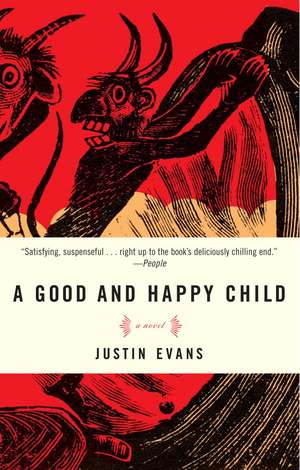
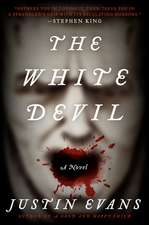
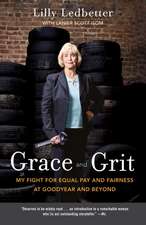
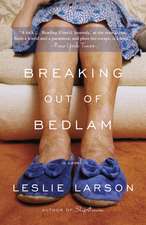
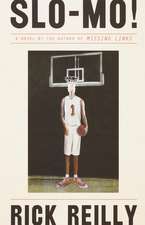
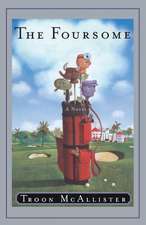
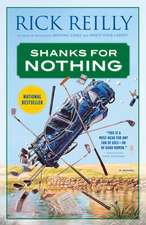
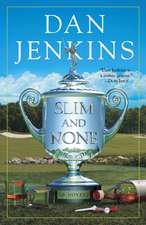




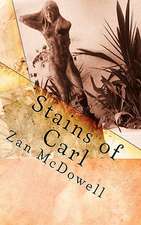



![Poets and Writers of 2011 [Special Edition]](https://i2.books-express.ro/bt/9781461198420/poets-and-writers-of-2011-special-edition.jpg)






